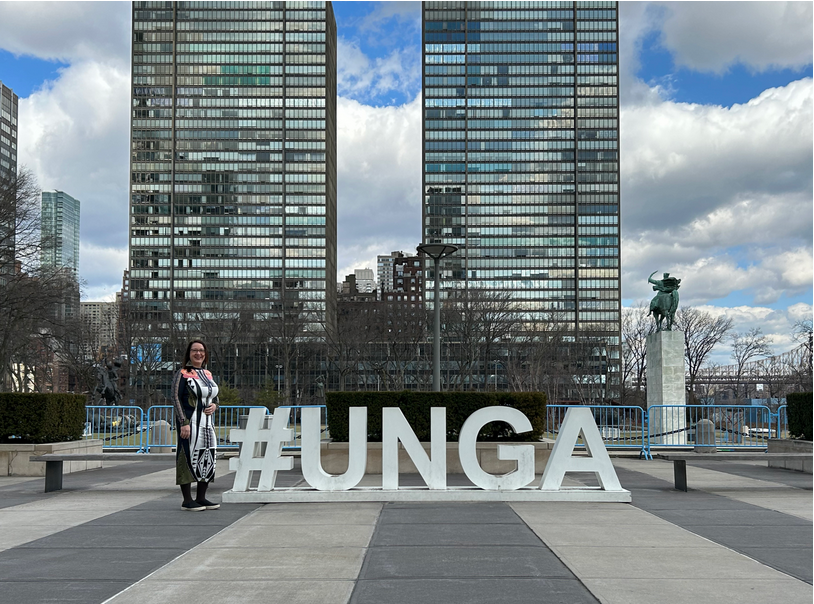The leader of the Ontario Native Women’s Association says a trip to New York to take part in a United Nations summit on the status of women provided a global platform to amplify Indigenous women’s voices.
ONWA’s executive director, Cora McGuire-Cyrette spoke with TBnewswatch from a New York hotel room about her experience attending the 67th session of the UN Commission on the Status of Women — known as CSW67 — which opened at the UN’s headquarters on Monday.
The event coincided with International Women’s Day, and was themed around innovation, technology, and education in the digital age.
It has highlighted unequal access to education, technology, and career opportunities in the STEM field for women, as well as issues like online harassment.
The meetings draw representatives from governments, the UN, and civil society and youth groups.
McGuire-Cyrette said she was honoured to be selected as a member of the Canadian delegation.
She called the chance to meet and work with Indigenous women from countries including Australia, New Zealand, Ecuador, Mexico, and the United States — who “face very similar issues” — the highlight.
She said ONWA, with over 50 years of experience, is able to play a leadership role in sharing some of its successes with organizations in other countries.
On Wednesday, Indigenous delegates used their platform to highlight the issue of missing and murdered Indigenous women and girls in a press conference.
Assembly of First Nations national chief RoseAnne Archibald drew attention to the case of four missing women in Manitoba, slamming the case’s handling by Winnipeg police as a “metaphor for how Indigenous women are treated and viewed in Canada.”
Within STEM, Indigenous women face barriers in terms of access to education and technology, delegates have also noted.
Indigenous people make up four per cent of Canadian adults, but under two per cent of those working in the STEM (science, technology, engineering, and math) field, according to ONWA.
“We really have to look at systemically, how are we going to remove those barriers?” said McGuire-Cyrette.
She said while some may be skeptical of the value of global institutions like the UN, she sees clear benefits for her organization and its mission.
“There is value in participating in these international forums, because there is accountability back to Canada — there are international mechanisms that we as an agency [can] utilize if needed,” she said. “It’s happened previously — changes to the Indian Act actually took place because the UN and treaty bodies stepped in.”
CSW67 will officially wrap up on March 17.
